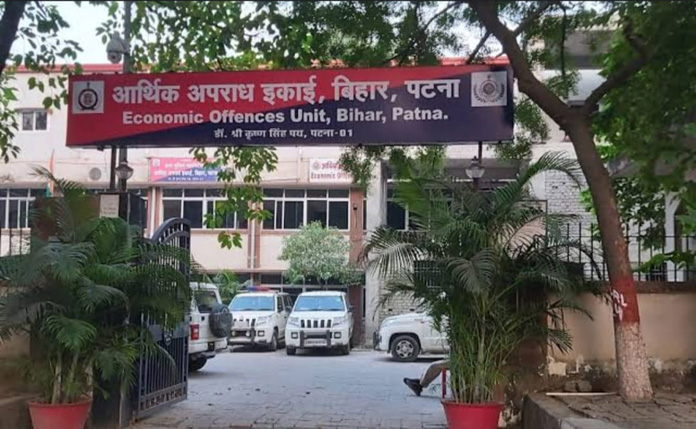By Alok Mohit and Neeraj Kumar
PATNA: The Economic Offenses Unit (EOU) of Bihar police arrested six more individuals from Deoghar in Jharkhand on Saturday in connection with the NEET paper leak case, bringing the total number of arrests to 19.
Police reported that the six arrested individuals, all residents of Nalanda district in Bihar, were suspected to be handlers and couriers hiding in Deoghar. Meanwhile, the Union Ministry of Education has requested all evidence gathered so far during the investigation from the EOU.
Among the 19 arrested are four candidates—Abhishek Kumar (21), Shivnandan Kumar (19), Ayush Raj (19), and Anurag Yadav (22). The remaining individuals include members of the examination mafia and parents of candidates. Initial investigations suggest that established examination racketeers orchestrated the question paper leak.
The police action began with the arrest of three individuals—Sikandar Yadavendu, Akhilesh, and Bittu. During the investigation, police found admit cards, mobile phones, and other documents belonging to many NEET exam candidates. As the investigation progressed, more arrests followed, totaling 19. The Patna Police received intelligence about the paper leak from the Jharkhand Police.
Key figures in the scandal include Nitish Kumar from Gaya and Amit Anand from Munger, described as lower-level exam mafiosi with connections to larger criminal networks. They allegedly acted as middlemen, facilitating deals between candidates and the main exam mafia, taking substantial commissions in the process. The investigation has revealed various roles played by the accused, including arranging safe houses for candidates to memorize answers to the leaked questions and coordinating transportation to exam centers.
Ashutosh Kumar from Patna and Roshan Kumar from Nalanda worked for Amit and Nitish, serving as “liners” who recruited candidates and managed logistics, including transporting candidates to exam centers after helping them to memorize the answers.
Sikandar Yadavendu, a key player in the leak, reportedly arranged deals worth ₹40 lakh each with candidates and their families to provide advance access to question papers. In this case, Yadavendu acted as a coordinator between the candidates and Nitish Kumar before the exam. He is also accused in a separate ₹2.92-crore LED scam case while working as a junior engineer in Rohtas.
Arrested accused Akhilesh Kumar worked closely with Yadavendu, aiming to help his son pass the NEET exam. During the exam, he was responsible for safely transporting children from a play school to the examination center. He delivered the question paper from the solver gang to other gang leaders along with the answers. In return for this work, Akhilesh agreed to a deal with Yadavendu, which required him to pay less money for his son—₹20 lakh instead of the usual ₹40 lakh.
Another arrested accused, Bittu Kumar from Rohtas, ferried candidates to Nitish. Additionally, he transported candidates from the school to the examination center. Bittu has previously been involved in many question paper leak cases and was earlier arrested by the Delhi Crime Branch in the NEET-PG question paper leak case. Bittu is also said to be a close associate of key accused Sanjeev Mukhiya.
Awadhesh Kumar, another arrested individual, is a resident of Ranchi and dealt with the exam mafias for his son, Abhishek Kumar. Among the 19 arrested is Reena Kumari, the mother of candidate Anurag Yadav, who is Yadavendu’s sister-in-law.

Meanwhile, Bihar’s Rural Works Minister Ashok Choudhary stated that the government was working on a zero-tolerance policy, emphasizing that no one involved in the NEET paper leak would be spared, regardless of their position. Choudhary noted that the Union government had implemented strict laws to address such issues and that investigating agencies were actively pursuing the case. The minister acknowledged that while a few bad actors could tarnish the reputation of an entire region, the government’s primary focus remained on development and ensuring that the benefits of progress reach all sections of society.




